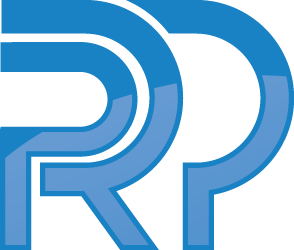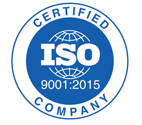Robert F. Kennedy Jr.'s potential influence on the U.S. healthcare regulatory environment could bring significant changes to the approval and compliance landscape for medical devices and pharmaceuticals. His long-standing views on public health, transparency, and corporate accountability suggest a regulatory shift that life science companies must prepare for. While some changes may add hurdles to product approvals, others could create new opportunities, particularly in alternative therapies and patient-centric innovation.
Potential Impacts on Medical Device and Drug Approval Processes
1. Increased Scrutiny and Extended Approval Timelines
Kennedy has been vocal about concerns related to safety and efficacy in the pharmaceutical industry, which could lead to stricter requirements for new drugs and medical devices. The FDA may implement:
-
More rigorous pre-market approval (PMA) requirements.
-
Increased scrutiny of clinical trial data, particularly regarding conflicts of interest.
-
Stronger oversight of accelerated approval pathways for novel therapies.
For medical device companies, this could mean additional hurdles for products using the 510(k) pathway, requiring more substantial evidence of safety and efficacy compared to predicate devices. Drug manufacturers may face longer review timelines as regulators demand larger, more diverse clinical trial populations.
2. Emphasis on Transparency and Data Integrity
Kennedy has often criticized the relationship between regulators and industry, advocating for greater transparency. Under his influence, we might see:
-
Stricter conflict-of-interest rules for FDA advisory panels.
-
Mandatory public disclosure of all clinical trial data, including adverse event reports.
-
Enhanced requirements for post-market safety reporting and real-world evidence.
Companies should anticipate more robust compliance demands, including better documentation, data validation, and risk mitigation strategies.
3. Promotion of Alternative Therapies
Kennedy’s openness to alternative medicine could lead to:
-
New regulatory pathways for alternative and holistic therapies.
-
A shift in focus towards personalized medicine, nutrition-based treatments, and non-traditional interventions.
-
Expanded funding for research on integrative health practices.
While this could be an opportunity for companies developing innovative therapies, it may also require them to comply with newly developed regulatory frameworks that emphasize safety and efficacy standards.
Quality and Compliance Considerations
1. Stricter Manufacturing Oversight
A focus on public health and corporate accountability could result in:
-
More frequent inspections of pharmaceutical and medical device manufacturing facilities.
-
Enhanced compliance with Good Manufacturing Practices (GMP) and Quality System Regulations (QSR).
-
Stricter enforcement of supply chain transparency, especially for international suppliers.
Companies should evaluate their quality management systems (QMS) to ensure they meet these potential new requirements.
2. Enhanced Post-Market Surveillance
If regulatory changes prioritize long-term patient safety, life sciences companies may face:
-
Increased post-market monitoring requirements for both drugs and devices.
-
More stringent reporting obligations for adverse events and recalls.
-
Expanded FDA authority to mandate label changes or additional clinical trials post-approval.
To stay compliant, companies should implement stronger pharmacovigilance and medical device tracking systems, ensuring early detection and reporting of safety concerns.
3. Environmental Compliance and Sustainability
Kennedy’s environmental activism may extend to healthcare regulations, potentially introducing:
-
Stricter environmental impact assessments for drug and device manufacturing.
-
Regulations limiting certain chemicals used in medical devices or drug formulations.
-
Stronger waste management policies for pharmaceutical disposal and medical waste.
Companies should start developing sustainability initiatives to align with potential environmental regulations.
Steps Life Science Leaders Must Take to Prepare
1. Strengthen Regulatory and Compliance Strategies
-
Conduct internal audits to identify potential compliance gaps.
-
Invest in regulatory intelligence teams to track evolving FDA policies.
-
Enhance documentation and data integrity practices to meet transparency demands.
2. Bolster Quality Management Systems (QMS)
-
Update QMS frameworks to comply with anticipated changes in GMP, QSR, and ISO 13485 standards.
-
Improve supplier oversight and risk management strategies.
-
Strengthen cybersecurity measures for digital medical devices.
3. Adapt to Potential Approval Delays
-
Build contingency plans for extended approval timelines.
-
Allocate additional resources for clinical trials and regulatory submissions.
-
Engage with the FDA early in development to navigate potential roadblocks.
4. Expand Post-Market Surveillance Capabilities
-
Invest in real-world evidence (RWE) collection and analysis.
-
Develop stronger adverse event monitoring and reporting systems.
-
Establish proactive recall and risk mitigation protocols.
5. Prepare for Environmental Compliance
-
Assess current manufacturing practices for environmental impact.
-
Implement greener alternatives in supply chains and production.
-
Monitor regulatory developments related to sustainability in life sciences.
Conclusion
The full extent of RFK Jr.'s impact on the medical device and pharmaceutical industries remains uncertain, but companies should proactively prepare for changes in regulatory scrutiny, approval timelines, and compliance requirements. By enhancing transparency, strengthening quality control, and investing in regulatory intelligence, life sciences leaders can navigate potential challenges while seizing new opportunities for innovation and patient safety.
Staying ahead of these shifts will require continuous monitoring of policy developments, engagement with regulatory authorities, and a commitment to best practices in compliance and quality assurance.



